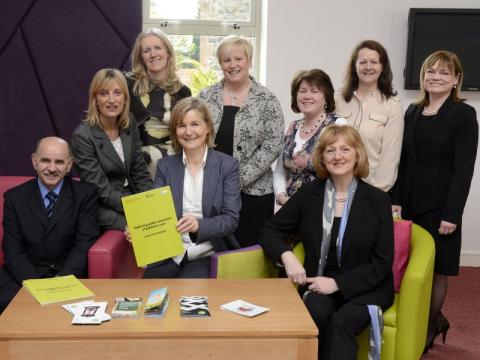Dying matters – Be ready for it!

Palliative and end of life care is everybody’s business, and to mark ‘Dying Matters Awareness Week’ (13 - 19 May 2013) the Public Health Agency (PHA) is urging everyone to take the opportunity to talk openly about dying, death and bereavement with those closest to them.
The theme for this year’s Dying Matters Awareness Week is ‘Be ready for it’, a focused call to action aimed at encouraging members of the public to take five simple steps to make their end of life experience better, both for them and for their loved ones.
The five steps are:
• Make a will
• Record your funeral wishes
• Plan your future care and support
• Register as an organ donor
• Tell your loved ones your wishes
Throughout Dying Matters Awareness Week, events and activities are being held to raise awareness about end of life issues.
Today [Wednesday 15 May] a regional Palliative and End of Life Care ‘Good Practice and Progress’ event brought together a range of healthcare professionals from across Northern Ireland to update them on key areas of work that have been undertaken within Palliative and End of Life Care in Northern Ireland.
Angela McVeigh, Chair of the Regional Raising Awareness and Understanding Subgroup, said: “The purpose of today’s event was to promote that palliative and end of life care services should be important to us all and will aim to get as many people as possible thinking, talking and acting during Dying Matters Awareness Week.
“The event updated on key areas of work that have been undertaken in Northern Ireland to improve palliative and end of life services and experiences. It will provide an opportunity for all providers of palliative and end of life care to consider future service delivery models.
“The message we want to get out to the public is that there may be important matters you want to address now rather than when time feels limited. Everyone should take the time to think ahead and consider your personal choices, talk to other people, including healthcare professionals and then tell key people, including family, of your decisions.
“Talking about dying, death and bereavement is in everyone’s interests as it can help ensure that all of us can get the care and support we want, where we want it at the end of our lives. Through being more confident in talking about dying and taking small actions to plan for the future and support each other, together we can make a big difference. Talking about death does not bring it any closer. It is about planning for life.”
For more information on Dying Matters visit www.dyingmatters.org
